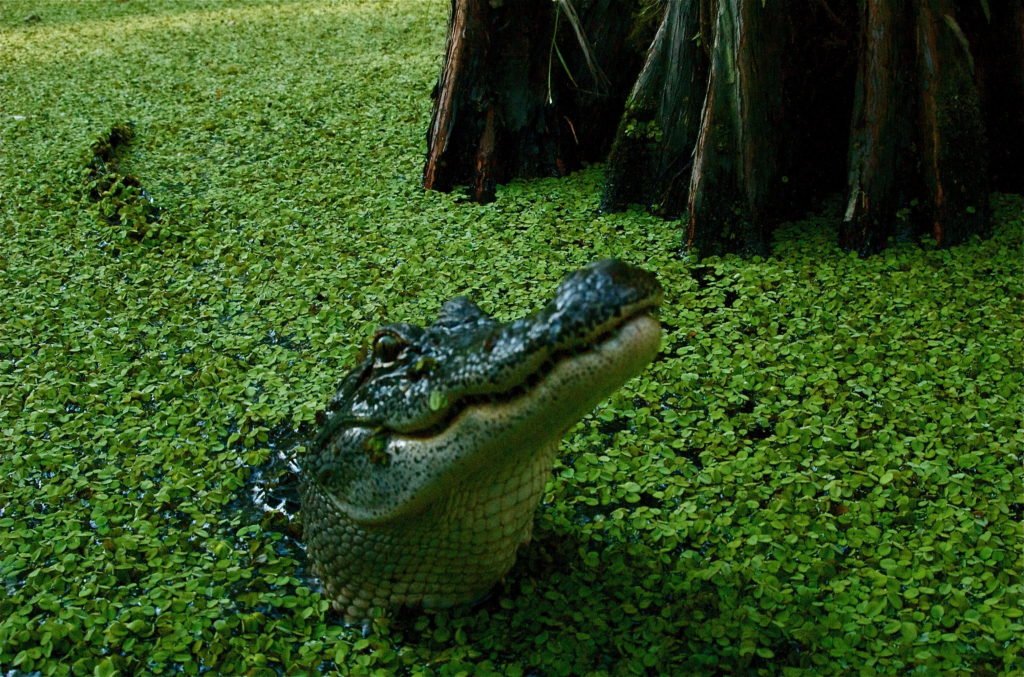Bayou Meaning – Learn Louisiana History
Bayous Are Teaming with Wildlife Like Alligators
You see the word a lot around Louisiana. So many of these strange waterways possess the name “bayou.” What is this mysterious word and what does it mean?
History of “Bayou”
First, the term bayou began with the Native Americans who lived in this region. Historian’s believe the word bayou originates from the Choctaw Indians. This local Native American tribe used to inhabit land in what is now the states of Louisiana and Mississippi. In the native Choctaw language, Chahta, they referred to small streams as bayuk. Next, historians believe that English and French settlers appropriated the word and pronounced it as “bayoo.” Lastly, Cajuns settled in the regions of South Louisiana with heavy wetland geography. These Cajun areas of Louisiana have made the word famous with their songs and cultural references.
Bayou in Modern Louisiana
The term bayou has evolved slightly to mean a very slow moving waterway. If a swamp is a stagnant fresh water wetland, then a bayou is a very slow moving wetland with a swampy appearance. Louisiana has extremely flat and wet terrain. When the rest of the world imagines valleys with streams. Meanwhile, Louisiana’s flat terrain makes a swamp nearly indistinguishable from a stream or small river. Both streams and swamps are overgrown with vegetation and have similar wildlife. However, a stream possesses extremely slowly moving water. In Louisiana these swampy slow moving waterways are referred to as “bayous.”
Bayous, much like swamps, contain all sorts of wildlife. In these unique waterways, you will find fish such as catfish, crawfish, bass, and perch. Bayous contain amphibians and reptiles such as turtles, alligators, frogs, and snakes. Lastly, they serve the important role of carrying sediment through the wetlands to rebuild the fragile coastlines which protect Louisiana from hurricanes.
